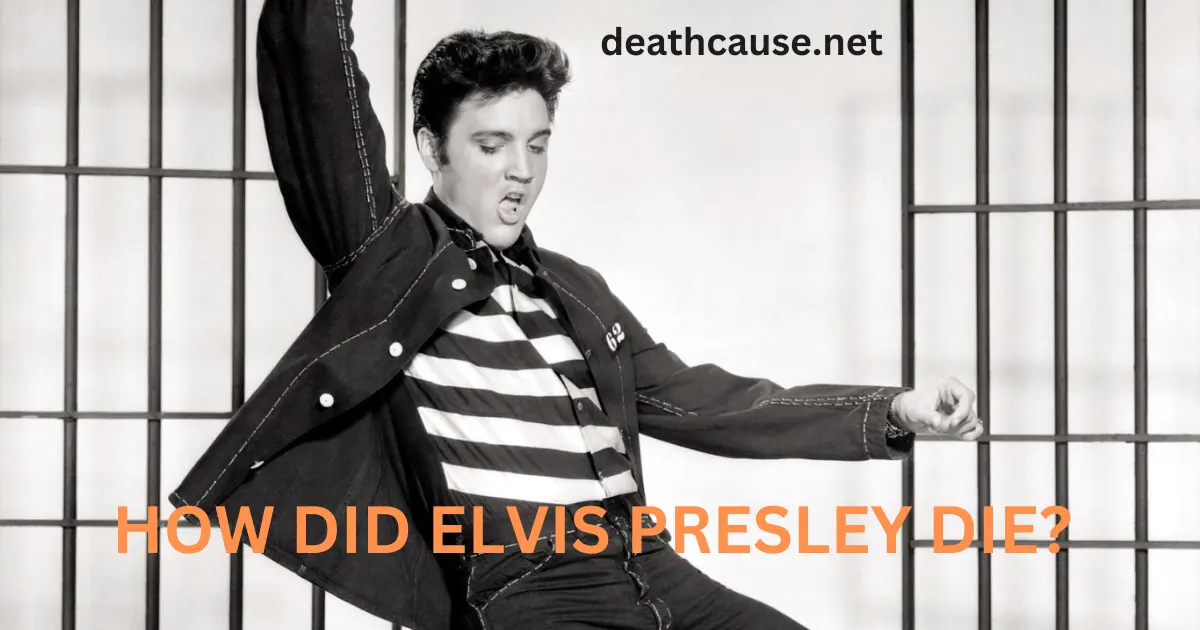Elvis Presley, the King of Rock and Roll, was a music legend who captivated audiences worldwide with his voice, moves, and charisma. But his dazzling career was cut short when he died suddenly at his home, Graceland, on August 16, 1977. He was just 42 years old.
His death shocked the world and left fans heartbroken. So, how did Elvis Presley die? While the immediate cause was a heart attack, the story is more complex. Let’s take a closer look at the factors that contributed to his untimely passing.
How Did Elvis Presley Die: Unraveling the Circumstances
Elvis’s death was a significant event, prompting much discussion and investigation. While the official cause was a heart attack, several factors likely played a role.
The Official Cause: Heart Attack
Elvis was found unconscious in his bathroom at Graceland. Attempts to revive him failed, and he was pronounced dead at the hospital. The medical examiner determined that a heart attack was the cause of death. However, this wasn’t a simple case of an aging heart giving out.
Contributing Factors: A Complex Picture
Several health issues likely contributed to Elvis’s heart attack. He had been struggling with:
- Prescription Drug Use: Elvis had been prescribed various medications for various ailments, including pain, insomnia, and anxiety. Over time, he developed a dependency on these drugs.
- Poor Diet: Elvis was known for his love of high-fat, high-calorie foods. This diet contributed to his weight gain and put a strain on his heart.
- Lack of Exercise: Elvis’s busy schedule and reliance on medication made it difficult for him to maintain a healthy lifestyle.
- Pre-existing Conditions: Elvis may have had underlying heart problems that were aggravated by his lifestyle and medication use.
The Role of Prescription Drugs
Elvis’s use of prescription drugs was a significant factor in his death. He had access to many medications, and toxicology reports revealed high levels of several drugs in his system. While these drugs were prescribed by a doctor, their combined effects likely contributed to his heart problems.
| Drug Category | Examples | Potential Effects |
|---|---|---|
| Painkillers | Codeine, Dilaudid, Demerol | Addiction, respiratory depression, constipation |
| Sedatives | Valium, Placidyl | Addiction, drowsiness, impaired coordination |
| Amphetamines | Dexedrine, Biphetamine | Increased heart rate, insomnia, anxiety |
It’s important to remember that prescription drugs, while sometimes necessary, can have serious side effects, especially when used long-term or in combination.
Lifestyle Choices and Their Impact
Elvis’s lifestyle choices also played a role in his declining health. His diet, rich in fried foods and sugary drinks, contributed to his obesity and high blood pressure. His lack of physical activity further exacerbated these problems.
| Lifestyle Factor | Impact on Health |
|---|---|
| Poor Diet | Obesity, high blood pressure, heart disease |
| Lack of Exercise | Reduced cardiovascular health, weight gain |
| Stress | Increased risk of heart problems |
While Elvis’s fame brought him joy and success, it also brought immense pressure and stress. These factors, combined with his unhealthy habits, likely took a toll on his body.
How Did Elvis Presley Die: The Aftermath
Elvis’s death was a wake-up call about the dangers of prescription drug misuse and the importance of a healthy lifestyle. It also sparked a conversation about the pressures of fame and the need for better support systems for celebrities.
A Legacy Remembered
Despite the circumstances of his death, Elvis’s legacy lives on. He is remembered as a musical innovator, a cultural icon, and one of the most influential performers of all time. His music continues to inspire and entertain people worldwide.
Lessons Learned
Elvis’s death serves as a reminder that even the biggest stars are not immune to health problems. It highlights the importance of:
- Responsible Drug Use: Prescription drugs should be used only as directed by a doctor.
- Healthy Lifestyle Choices: A balanced diet and regular exercise are crucial for maintaining good health.
- Seeking Help When Needed: It’s important to seek professional help for physical and mental health issues.
Elvis’s story is a cautionary tale, but it’s also a story of immense talent and enduring legacy. By learning from the past, we can work to prevent similar tragedies in the future.
Conclusion: Remembering the King
Elvis Presley’s death was a tragic loss, but his music and influence continue to inspire generations of fans. While his passing was linked to a heart attack, it’s clear that multiple factors contributed to his declining health.
By understanding the circumstances surrounding his death, we can appreciate the importance of healthy living and responsible drug use. Elvis may be gone, but his legacy as the King of Rock and Roll will never be forgotten.
FAQs
How old was Elvis when he died?
Elvis Presley was 42 years old when he passed away on August 16, 1977.
Where did Elvis Presley die?
Elvis died at his home, Graceland, in Memphis, Tennessee.
Was Elvis Presley’s death a surprise?
While Elvis had some known health issues, his death was still a shock to the world. He was relatively young, and his sudden passing left fans and loved ones devastated.
What were the contributing factors to Elvis Presley’s death?
Elvis’s death was attributed to a heart attack, but several factors likely contributed, including prescription drug use, poor diet, lack of exercise, and possible underlying health conditions.
What is Elvis Presley’s legacy?
Elvis Presley is remembered as a pioneering figure in rock and roll music. His energetic performances, unique vocal style, and charismatic personality captivated audiences worldwide. He left behind a vast catalog of music that continues to be enjoyed today, solidifying his status as a cultural icon.
